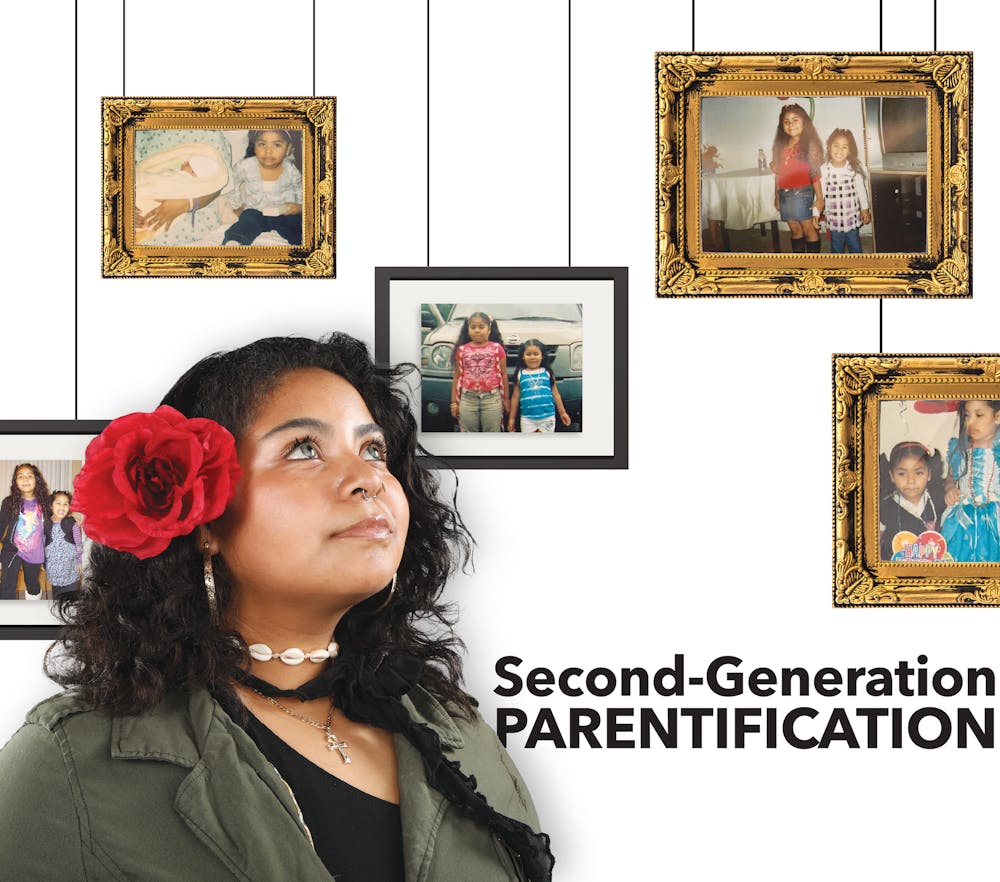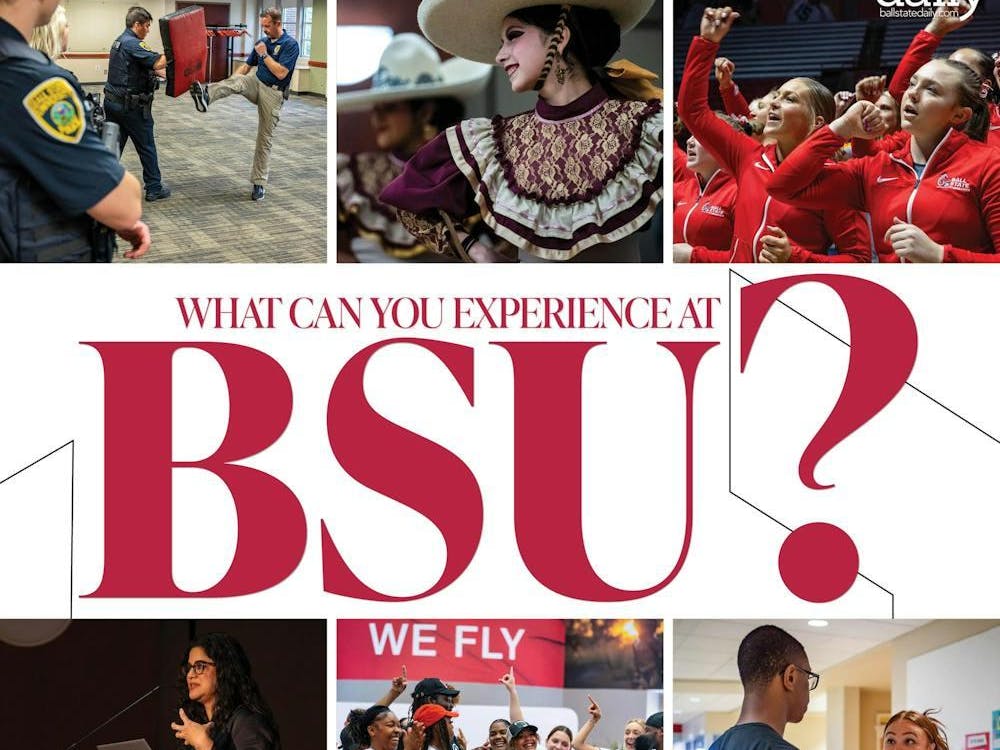Cristal Mariano is a first-year journalism major and writes “Breaking Barriers” for the Daily News. Her views do not necessarily reflect those of the newspaper.
Being the oldest daughter in an immigrant family can be a blessing and a curse. While it’s great being a role model for your siblings, it can be very complicated when trying to balance life as a student, the oldest sibling in a single-mother household and an individual human being all rolled into one.
Eldest siblings are often seen as a guiding force for their younger brothers and sisters. The pressure to excel academically, professionally and socially can be immense as we are expected to pave the way for our siblings to follow. Because if not, who will we look after?
And in the same breath, there’s an added layer of complexity when being the child of immigrant parents.
From helping parents navigate official documents to bridging the communication gap with teachers and healthcare providers, the oldest sibling often plays a crucial role in ensuring smooth communication within the family.
And you're always having to remind yourself that you are sacrificing for the sake of your family — that you’re breaking generational cycles. There are thoughts like: “How can I care for my siblings and be there for my parents while also leading my own life?”
According to a study by UCLA, researchers found that mothers tend to depend on firstborn daughters to help in caring for younger siblings, especially in high-stress environments.
From a young age, the responsibility of an older sibling is having to learn responsibility and adapt to an adult outlook while still being a child yourself.
That’s a lot to take on.
In my case, my siblings were more worried about being their own person and fitting their roles as a child and students. As the eldest, I didn’t get to do that. I was fitting the role of an absent father.
I rarely had time to focus on myself or focus on what goals I had for the future. Instead, my focus was: “I need to finish my assignments and finish cleaning the dishes,” or “I wonder what I am going to make for dinner tonight.”
These responsibilities were very hard on me at the age of eight — which was when I started to take on roles more typical of a parent or guardian. One day, my mom sat me down and told me about a job offer she accepted. She told me, as she grabbed my hand, “I want you to help me with your sisters because, after all, we have each other, and we need to look out for each other.”
As a kid, I didn’t understand what she meant, but when the responsibilities hit me all at once, it took a lot of my childhood and teen years to make sure my siblings were taken care of.
Getting older seems to pay off as you cross into the threshold of adulthood. Instead of the harsh transition many face, it’s smoother. It’s because you’ve acted like and done the duties of an adult for years.
Now, as a current adult with a job of my own, I have gotten myself things I wish I could have as a kid, such as stuffed animals and anime-related items. It is very healing for my inner child as an adult, which makes me happy now.
Being a first-generation Latina in college has brought before me a lack of obstacles, such as low self-confidence, the quality of my work and my academics.
I felt I was always supposed to give but never intended it for myself. It is a difficult path when you’re pressured to be successful and make your family proud since they made so many sacrifices for you to be here. My priority for myself was last, and responsibilities as an elder daughter and caretaker were always put first. Now on my own, it is hard to set boundaries with people and put myself first when my whole childhood was based on nurturing others.
But while I thought being a good role model for my siblings was stepping into a parental role myself, what I feel I should’ve done was set boundaries with my parents.
I don’t want my siblings, or even my parents, to go through what I’ve gone through. I don’t want them to experience the embarrassment of saying the wrong words in English. I don’t want them to feel like a failure after every single sacrifice of the person before them. Forming boundaries with my family was an example of a role model for my siblings to know that boundaries can be a healthy way to take care of yourself.
Setting boundaries, of course, took time for me to do. I started going to therapy. I set realistic goals for myself. Forming and adapting boundaries, especially with those you love, can be tricky.
There are sometimes feelings of guilt I deal with since I chose the road of higher education instead of staying as a caregiver for my siblings and translator for my parents.
But I have to put my future and myself first and start figuring out who I really want to be. It took a lot of thinking to decide to pursue higher education since coming to college meant I would have to leave my sisters at home without me. But this was the best decision for me, and I learn more about myself every day.
My journey as the eldest daughter has brought me closer to my sisters. Sometimes there’s a barrier to keeping up with them and making sure they are on the right path since I am setting the example. At the very end, we have each other to support. Family is really important. Learning to embrace boundaries and self-respect is a healthy way of representing what it means to be a role model for the little ones to see and our parents to understand.
For other eldest siblings reading this, it is a process, especially when you decide to proceed with higher education. Just remember why you started and why you want to continue.
The responsibility of being a role model and the anxiety of being a person of guidance for every member of your family can take a toll on your mental health. Breathe. You may be a student or an eldest sibling or someone just finding a way to stay afloat, but at the end of the day, you are human too.
Contact Cristal Mariano with comments at cmarianovargas@bsu.edu or on X @remkearchangel.





